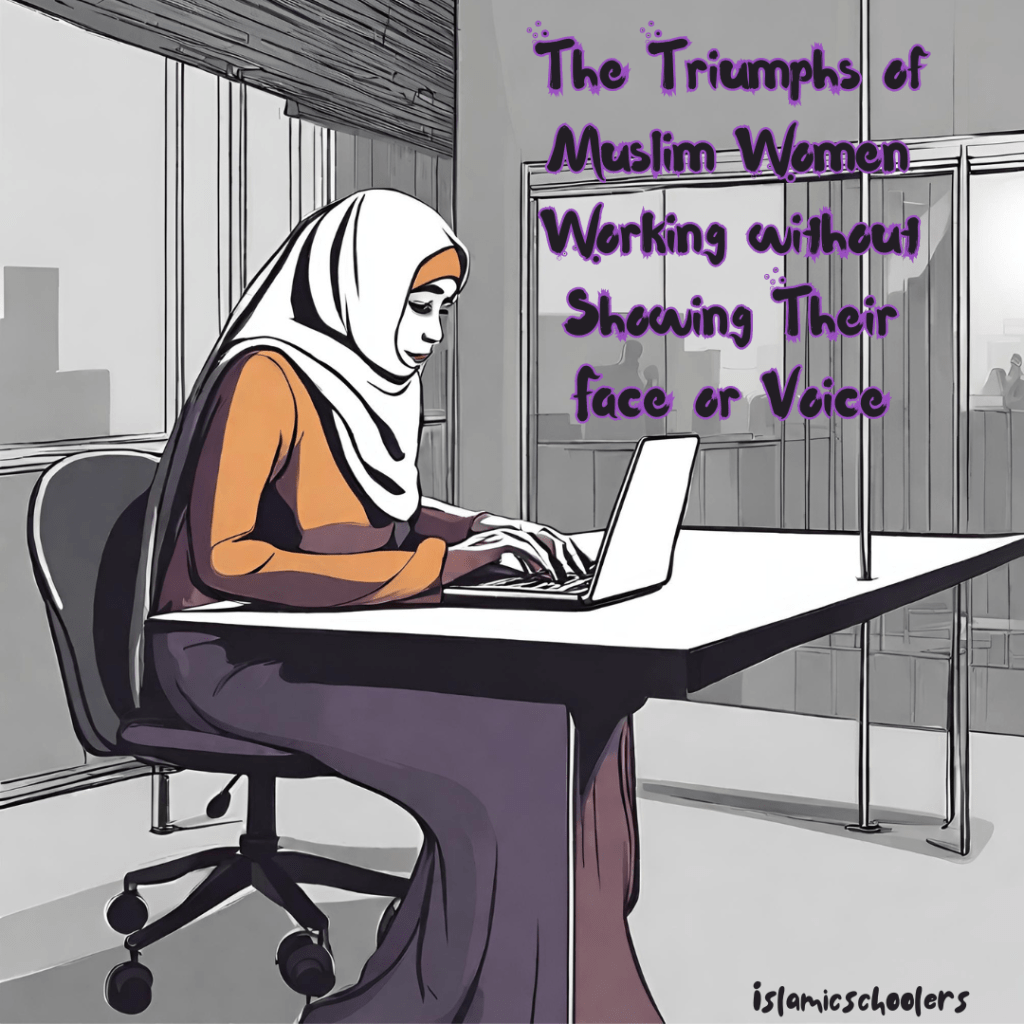In today’s world where diversity and inclusivity are essential for progress, it’s important to explore ways in which Muslim women can fully participate in professional life while respecting their cultural and religious beliefs. This article aims to shed light on how Muslim women can excel in the workplace without compromising their preference to not show their face or voice. It proves that the power lies not in one’s appearance but in one’s skills, talents, and contributions.
Firstly, it’s important to remember that competence, skills, and expertise are universally understood and recognized. For Muslim women who prefer not to show their face or voice for personal or religious reasons, the focus should be on honing these abilities to demonstrate the value they bring to the workplace. Employers and colleagues will judge individuals based on the quality of their work, rather than their physical appearance.
Secondly, communication skills are crucial in any workplace. Non-verbal communication, such as body language, written communication, and active listening, can become powerful tools for Muslim women to convey their thoughts, ideas, and emotions. By mastering these skills, they can build stronger connections and be heard without compromising their personal choices.

Thirdly, the digital era has opened up new avenues for professional engagement, empowering individuals to work remotely and collaborate virtually. Muslim women who prefer not to show their face or voice can take advantage of these technological advancements to connect with colleagues and clients from different locations. Tools like video conferences, instant messaging, and email provide avenues for communication that eliminate the traditional barriers of physical appearance.
Fourthly, cultural identity is a significant strength for Muslim women. By celebrating diverse cultural backgrounds in the workplace, organizations can foster an inclusive environment that values individual choices and contributions. Muslim women can take pride in their cultural heritage while actively participating and excelling in their chosen professions.
Lastly, creating networks of like-minded individuals and supportive allies can play a crucial role in the professional growth of Muslim women. Engaging with organizations, communities, and mentorship programs focused on empowering women can provide valuable insights, mentorship opportunities, and a sense of belonging. These networks foster encouragement, guidance, and the exchange of ideas, helping Muslim women overcome challenges and push the boundaries of professional success.
Muslim women who choose not to show their face or voice deserve every opportunity for professional growth and empowerment. By focusing on skill development, embracing alternative forms of communication, leveraging technology, celebrating cultural identity, and building supportive networks, they can excel in any field. Let us encourage, support, and celebrate the achievements of these women, recognizing that their work speaks for itself, regardless of their appearance. Together, we can create a world where every woman thrives in professional endeavours and contributes to the progress of our society. And most of all, I am one of those women.

